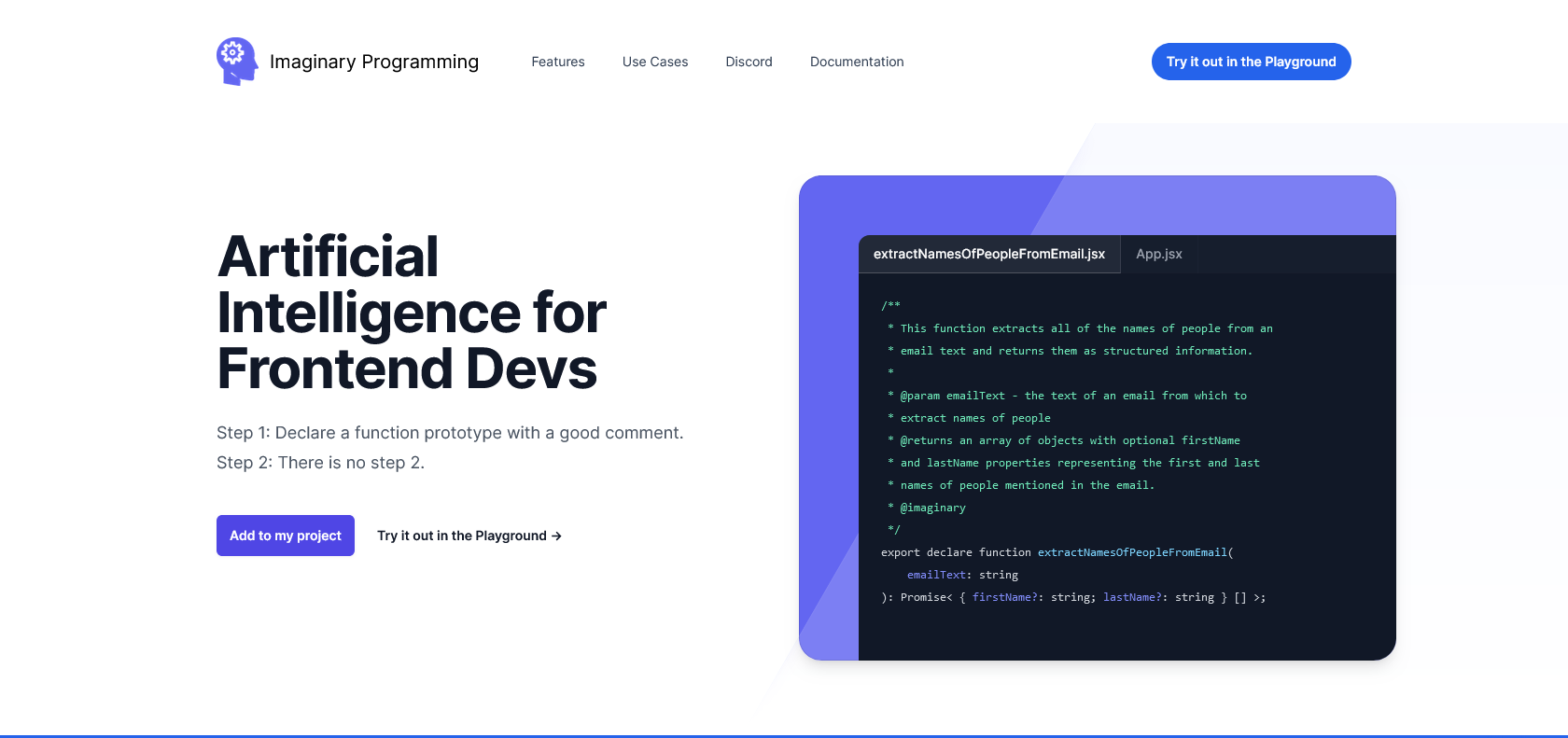Discover 7422 Tools

Unlock your coding potential with AI.
Unlock the power of AI with Imaginary Programming. Create Node.js apps quickly, automate ML tasks, and unleash your innovation.

Imaginary Programming is an innovative AI tool designed to revolutionize the way developers create groundbreaking solutions. With this tool, developers no longer need a dedicated ML team to leverage the power of AI. By utilizing OpenAI's GPT engine as a runtime, Imaginary Programming allows users to easily define a function prototype in TypeScript and let the tool take care of the rest.
One of the key advantages of Imaginary Programming is its seamless integration with Node.js applications. Being TypeScript-based, it quickly integrates GPT's intelligence, making it an invaluable tool for developers working with Node.js.
The true strength of Imaginary Programming lies in its ability to break down complex tasks into smaller, more manageable ones. With the help of AI, developers can automate ML tasks, freeing up their time and allowing them to focus on innovation. By streamlining the development process, Imaginary Programming enables developers to work smarter and faster, significantly reducing the time and effort required to create solutions.
Furthermore, this tool encourages a more creative and efficient approach to problem-solving. By harnessing the power of AI, developers can create solutions that are not only more innovative but also more effective and cost-efficient.
Create Node.js apps faster with GPT TypeScript.
Break down complex tasks with AI.
Automation of ML tasks for developers.
Focus on innovation with Imaginary Programming.
Imaginary Programming

Join the AI revolution and explore the world of artificial intelligence. Stay connected with us.
Copyright © 2025 AI-ARCHIVE
Today Listed Tools 215
Discover 7422 Tools